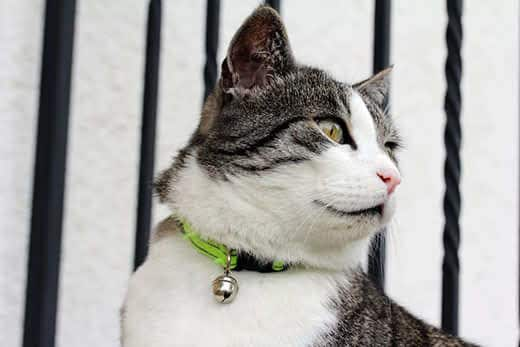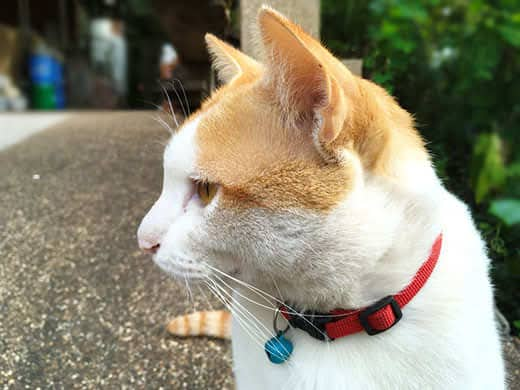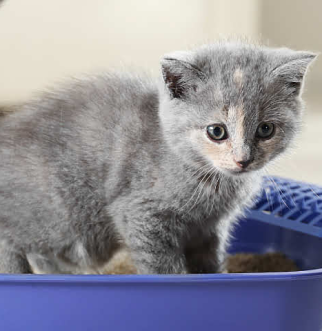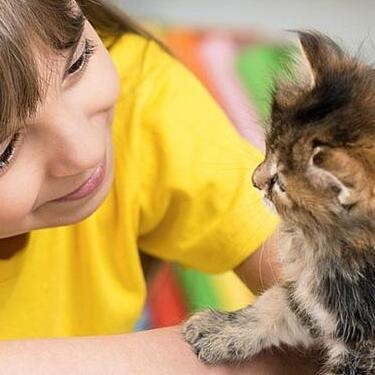
-
Find the right food for your pet
Take this quiz to see which food may be the best for your furry friend.
Find the right food for your pet
Take this quiz to see which food may be the best for your furry friend.
Featured products
 Adult Healthy Cuisine Roasted Chicken, Carrots & Spinach Stew Dog Food
Adult Healthy Cuisine Roasted Chicken, Carrots & Spinach Stew Dog FoodDelicious roasted chicken paired with tender vegetables in a succulent stew
Shop Now Small & Mini Savory Stew with Chicken & Vegetables Dog Food
Small & Mini Savory Stew with Chicken & Vegetables Dog FoodA delicious complement to the nutrition of Science Diet Small & Mini 7+ dog food
Shop Now Adult 7+ Perfect Digestion Chicken, Whole Oats & Brown Rice Recipe Dog Food
Adult 7+ Perfect Digestion Chicken, Whole Oats & Brown Rice Recipe Dog FoodScience Diet's breakthrough nutrition supports ultimate digestive well-being & healthy microbiome for dogs age 7+
Shop NowFeatured products
 Adult 7+ Senior Vitality Chicken & Vegetable Stew Cat Food
Adult 7+ Senior Vitality Chicken & Vegetable Stew Cat FoodImproves Everyday Ability to Get Up & Go
Shop Now Adult Savory Entrée Can Variety Pack Cat Food
Adult Savory Entrée Can Variety Pack Cat FoodPrecisely balanced nutrition with the delicious taste of savory minced chicken to help fuel the energy needs of cats during the prime of their life
Shop Now Adult 7+ Tender Tuna Dinner Cat Food
Adult 7+ Tender Tuna Dinner Cat FoodWith delicious chunks in a decadent gravy
Shop Now -
Dog
- Dog Tips & Articles
-
Health Category
- Weight
- Food & Environmental Sensitivities
- Urinary
- Digestive
- Joint
- Kidney
-
Life Stage
- Puppy Nutrition
- Adult Nutrition
- Senior Nutrition
Cat
- Cat Tips & Articles
-
Health Category
- Weight
- Skin & Food Sensitivities
- Urinary
- Digestive
- Kidney
-
Life Stage
- Kitten Nutrition
- Adult Nutrition
Featured articles
 Do Dogs and Cats have Belly Buttons?
Do Dogs and Cats have Belly Buttons?Learn whether cats & dogs have belly buttons like humans, what the function is, and if there are any health concerns associated with it.
Read More Does My Pet Hate Me?
Does My Pet Hate Me?Learn tips for bonding with your pet if you've ever thought, 'My dog doesn't like me, or 'Why do I have a standoffish cat?'
Read More Why Are Dogs and Cats So Cute?
Why Are Dogs and Cats So Cute?If waggy puppy dog tails and furry kitten yawns make you swoon, you're not alone. Why are cats so cute? And, dogs too! Let's find out!
Read More -


If your cat's gurgling stomach is keeping you up at night, you may be wondering how healthy your cat's digestive system is. In most cases, when a cat's stomach is making noises, it's the result of simple digestive movement. Although typically unrelated to more serious health disturbances, it's always worth investigating these sounds to determine whether they're a sign of something more. Is your cat's stomach making noises? Read on to learn what may be causing it and when to reach out to your veterinarian.
Breaking Down Why My Cat's Stomach Gurgles
The grumbling, gurgling sound that a feline stomach makes is called borborygmus, which is the term for the bubbly sound gasses make as they're pushing their way through the stomach and the intestines.

Picture what's happening as pockets of gas getting "popped" as they're continually squeezed by the almost rhythmic forward propulsion of ingested food. Gases are always present in the gastrointestinal (GI) tract, either because they're ingested at mealtime (along with food) or because they're created by the teeming of bacteria as they work to help digest nutrients delivered by the food. Either way, gas is a normal participant in the digestive process.
However, some cats have louder digestive sounds than others — sounds that typically occur within an hour or two after a meal. Meanwhile, others will only produce these sounds when they're obviously experiencing discomfort or displaying clinical signs of a potential condition.
Cat's Stomach Making Noises: Other Signs to Look Out For
You may find yourself wondering, "My cat's stomach gurgles often — what other signs could signal there is a problem?" The first thing you should do is take note of how your cat is feeling aside from the stomach gurgling. If your cat is showing no other signs of disease or discomfort, and the gurgling is part of their normal after-meal routine, it's unlikely to be a cause for alarm. Nevertheless, it's always helpful to ask your vet about these sounds during your cat's next check-up.
However, if a cat with borborygmus starts showing signs of disease or discomfort, an urgent veterinary visit is definitely in order. Specific signs to look out for include:
- Decreased appetite
- Vomiting
- Regurgitation
- Abnormal stool quality or quantity
- Changes in eating habits
- Abdominal discomfort
- Lethargy
These crucial signs may be subtle and tough to identify, especially in multi-cat households. Extra vigilance is always recommended in these cases. If your cat isn't eating at all, this is considered an emergency that requires a prompt consultation with your veterinarian.
Potential Causes From Within the GI Tract
The persistent gurgling of gases can be the result of a disease within the GI tract itself or of some other organ system (or systemic disease). Causes from within the GI tract may include the following:

- Food sensitivities or allergies, sometimes classified as inflammatory bowel disease (which can also be triggered by stress)
- Foreign body ingestion (toys, strings, etc.)
- Hairballs
- Stomach ulcers
- Cancer of the GI tract
- Intestinal irritation (related to parasites, eating new foods or ingesting spoiled food)
In fact, anything that causes a change in a cat's normal intestinal bacteria can cause excessive gas production, increased gastrointestinal activity and, therefore, borborygmus.


Tasty Tips
Potential Causes Due to Non-Digestive Diseases
A wide variety of illnesses can also lead to an upset digestive tract and abnormal gas activity. Here are a few of the more common reasons:
- Ingesting excessive amounts of gas, as can happen with respiratory or dental problems
- Diseases that cause nausea, such as brain, liver and kidney diseases
- Pancreatitis
- Cancers
- Thyroid disease
- Infections
Even simple stress can lead to an upset stomach in cats.
Soothing Treatments and Interventions
Let's say your cat's sounds are mild, occasional and unaffiliated with any of the more concerning signs of disease — and you've seen your vet. In most cases, no treatment is required. However, it's always worthwhile to try one or more simple remedies for an upset stomach.
- Probiotics: These "good" bacterial colonies can help even out bacterial disturbances of the GI tract.
- Prebiotics: These are nutrients that feed the "good" bacteria, thereby preferentially supporting these colonies. Digestible fiber is the most common prebiotic.
- Hairball remedies: These can offer some assistance for cats who have frequent hairball challenges. However, brushing regularly is often just as effective.
As always, ask your vet before embarking on any new course of treatment.
Preventing Cat Stomach Gurgling
Many cat parents may say to themselves, "My cat's stomach gurgles — is there anything I can do to prevent this?" If the gurgling seems persistent and possibly uncomfortable, and your vet has found no major cause for concern, consider the use of probiotics and prebiotics to help support the feline GI tract. Many are available as over-the-counter dietary supplements.
Therapeutic gastrointestinal foods for "sensitive stomachs" are also a consideration as these can often help prevent GI disturbances through a number of means. These foods are available from your vet, so go ahead and ask if one is appropriate for your furry friend.


Dr. Patty Khuly is an award-winning veterinarian known for her independent thinking, her spirited pet advocacy, her passion for the veterinary profession, and her famously irreverent pet health writing.
Dr. K is an honors graduate of both Wellesley College and the University of Pennsylvania School of Veterinary Medicine. She received her MBA at The Wharton School of Business as part of the prestigious VMD/MBA dual-degree program. She now owns Sunset Animal Clinic, a veterinary practice in Miami, Florida.
Related products
Related articles

Cats are naturally very clean and chances are your kitten will already have learned how to use the litter box from her mother before she comes to live with you.

Discover how to train your cat, starting with very basic first steps that both reward good behavior and discourage the bad.

How do you get a cat to lose weight? Learn all about cat foods for weight loss, including how to choose weight control cat food and exercise tips.

What is the best food for an overweight cat? Learn all about weight control food for cats, including what's in it and how it works.

Put your cat on a diet without them knowing
Our low calorie formula helps you control your cat's weight. It's packed with high-quality protein for building lean muscles, and made with purposeful ingredients for a flavorful, nutritious meal. Clinically proven antioxidants, Vitamin C+E, help promote a healthy immune system.
Put your cat on a diet without them knowing
Our low calorie formula helps you control your cat's weight. It's packed with high-quality protein for building lean muscles, and made with purposeful ingredients for a flavorful, nutritious meal. Clinically proven antioxidants, Vitamin C+E, help promote a healthy immune system.

